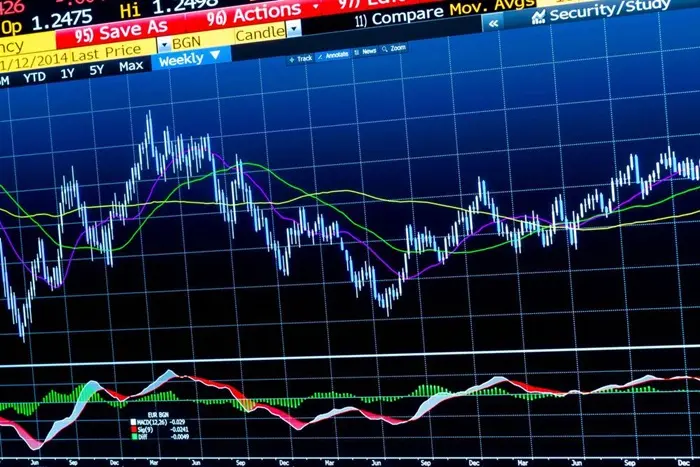Inflation is an economic phenomenon that has the potential to influence various aspects of the financial world, including the stock market. While some investors may view inflation as a sign of economic growth, others may see it as a potential risk to their investments. Understanding the relationship between inflation and stocks is crucial for making informed decisions about your portfolio, especially in periods of rising prices.
In this article, we will explore what happens to stocks during inflation, how inflation impacts the stock market, and strategies investors can use to navigate inflationary periods.
Understanding Inflation and Its Causes
Inflation refers to the general increase in prices of goods and services over time, which results in a decline in the purchasing power of money. In simpler terms, when inflation is high, each unit of currency buys fewer goods and services than it did before. Inflation is typically measured by indices such as the Consumer Price Index (CPI) or the Producer Price Index (PPI), which track changes in the prices of a basket of goods and services.
There are several causes of inflation, which can be broadly categorized as demand-pull inflation and cost-push inflation:
Demand-Pull Inflation: This occurs when there is an increase in demand for goods and services that outstrips supply, leading to higher prices. A growing economy, increased consumer spending, or government stimulus programs can contribute to demand-pull inflation.
Cost-Push Inflation: This type of inflation occurs when the cost of production increases, such as higher labor costs or rising raw material prices. Companies often pass these increased costs onto consumers in the form of higher prices, leading to inflation.
Monetary Inflation: Central banks, such as the Federal Reserve in the United States, can create inflation by increasing the money supply. When more money is in circulation, its value can decline, leading to higher prices for goods and services.
Inflation can have a variety of effects on the economy and financial markets, particularly on stocks. To understand how inflation affects stocks, it is important to consider the different factors at play.
How Inflation Impacts the Stock Market
Inflation can impact the stock market in several ways, and its effects can vary depending on the level of inflation, the underlying causes, and the responses from central banks and governments. Below are some of the key ways inflation affects stocks:
1. Higher Interest Rates
One of the most direct impacts of inflation on the stock market is the potential for higher interest rates. Central banks typically raise interest rates in response to rising inflation in an effort to control inflationary pressures. Higher interest rates make borrowing more expensive, which can slow down consumer spending and business investment.
For stocks, higher interest rates can have negative effects, particularly on growth stocks. Growth stocks, which are typically associated with high future earnings potential, are more sensitive to changes in interest rates. As borrowing costs increase and future cash flows are discounted at higher rates, the valuation of growth stocks can decrease. This is because the present value of future earnings becomes lower in a high-interest-rate environment.
2. Rising Input Costs for Companies
Inflation often leads to higher costs for businesses, especially when it comes to raw materials, labor, and transportation. These increased costs can erode profit margins, as companies may struggle to pass on higher costs to consumers without affecting demand for their products and services.
For example, if the price of oil rises due to inflation, companies that rely on oil for production or transportation may face higher operating costs. If these companies are unable to raise prices to cover the increased costs, their profits may decline, which can lead to lower stock prices.
3. Reduced Consumer Spending
When inflation rises, the purchasing power of consumers declines. This means that consumers can buy fewer goods and services with the same amount of money. As a result, businesses may experience lower demand for their products, which can negatively affect their earnings. In turn, lower earnings can lead to declines in stock prices.
Consumer discretionary stocks, which are associated with non-essential goods and services, are particularly vulnerable to inflation. During periods of inflation, consumers may cut back on discretionary spending in favor of more essential purchases, such as food, energy, and healthcare. As a result, companies in sectors like retail, travel, and entertainment may see a decline in sales, which can impact their stock prices.
4. Uncertainty and Volatility
Inflation can create uncertainty in the economy, particularly if it is unexpected or accelerates quickly. This uncertainty can lead to increased volatility in the stock market, as investors may be unsure of how inflation will impact corporate earnings, interest rates, and the broader economy.
Stock prices may fluctuate more widely during inflationary periods as investors react to economic data, central bank actions, and news related to inflation. For example, if inflation data comes in higher than expected, it could trigger fears of tighter monetary policy and a slowdown in economic growth, leading to a sell-off in stocks.
5. Sector-Specific Impacts
While inflation can have a broad impact on the stock market, some sectors may benefit from rising prices, while others may struggle. Understanding which sectors are more resilient or even benefit from inflation can help investors make informed decisions about their portfolios.
Energy Sector: The energy sector often benefits from inflation, particularly if inflation is driven by rising commodity prices such as oil, natural gas, or coal. Energy companies may see higher revenues and profits as the price of their products increases.
Materials and Commodities: Companies in the materials and commodities sector, such as mining and agriculture, may also benefit from inflation. These companies often produce products that are directly tied to inflationary pressures, such as metals, grains, and other raw materials.
Financials: The financial sector, particularly banks, may benefit from rising interest rates, which typically accompany inflation. As interest rates rise, banks can charge higher rates on loans and mortgages, leading to increased profits.
Consumer Staples: Companies in the consumer staples sector, which produce essential goods such as food, beverages, and household products, may be more resilient during inflationary periods. Since demand for these products is less sensitive to price changes, consumer staples companies may be able to pass on higher costs to consumers without significantly affecting sales.
Technology and Growth Stocks: Technology and growth stocks tend to perform poorly during periods of high inflation, particularly if rising interest rates negatively affect their valuations. These stocks often rely on future growth prospects, and higher interest rates can reduce the present value of future earnings.
Strategies for Investing in Stocks During Inflation
While inflation can create challenges for investors, there are strategies that can help mitigate the negative effects and take advantage of inflationary opportunities.
1. Invest in Inflation-Protected Assets
One strategy to consider during inflation is investing in assets that are designed to protect against inflation. For example, Treasury Inflation-Protected Securities (TIPS) are government bonds that are indexed to inflation. TIPS provide investors with a fixed interest rate, plus an adjustment for inflation, which helps preserve purchasing power.
Investors can also consider investing in real estate, as property values and rents often rise during periods of inflation. Real estate investment trusts (REITs) are a popular way to gain exposure to real estate without directly owning property.
2. Diversify Your Portfolio
Diversification is a key strategy for managing risk during inflationary periods. By spreading investments across different asset classes, sectors, and geographic regions, investors can reduce their exposure to any one area that may be negatively impacted by inflation.
For example, investors can balance their stock holdings with bonds, commodities, and international investments to create a more resilient portfolio. Diversification can help smooth out the volatility caused by inflation and protect against losses in specific sectors or industries.
3. Focus on Dividend Stocks
Dividend stocks can be an attractive option during inflationary periods, as they provide a steady income stream that can help offset the rising cost of living. Companies that consistently pay dividends are often more stable and financially sound, making them a safer bet during times of inflation.
Investors may want to focus on companies with a history of increasing their dividends, as these companies are more likely to be able to maintain or grow their payouts, even during inflationary periods.
4. Consider Sector Rotation
As inflation affects different sectors in different ways, investors can consider rotating their investments into sectors that are more likely to benefit from rising prices. For example, during inflationary periods, sectors such as energy, materials, and financials may perform better than sectors like consumer discretionary or technology.
By actively managing sector allocation, investors can position their portfolios to take advantage of trends created by inflation, potentially boosting returns.
Conclusion
Inflation can have a significant impact on stocks, affecting everything from interest rates and consumer spending to the profitability of individual companies. While inflation poses risks to stock prices, particularly for growth stocks and consumer discretionary companies, there are also opportunities for investors to benefit from rising prices.
By understanding how inflation affects the stock market and employing strategies such as diversifying portfolios, investing in inflation-protected assets, focusing on dividend stocks, and rotating into inflation-sensitive sectors, investors can navigate inflationary periods more effectively and position themselves for long-term success.
As always, it is important for investors to remain informed, monitor economic trends, and consider their financial goals and risk tolerance when making investment decisions during periods of inflation.






























